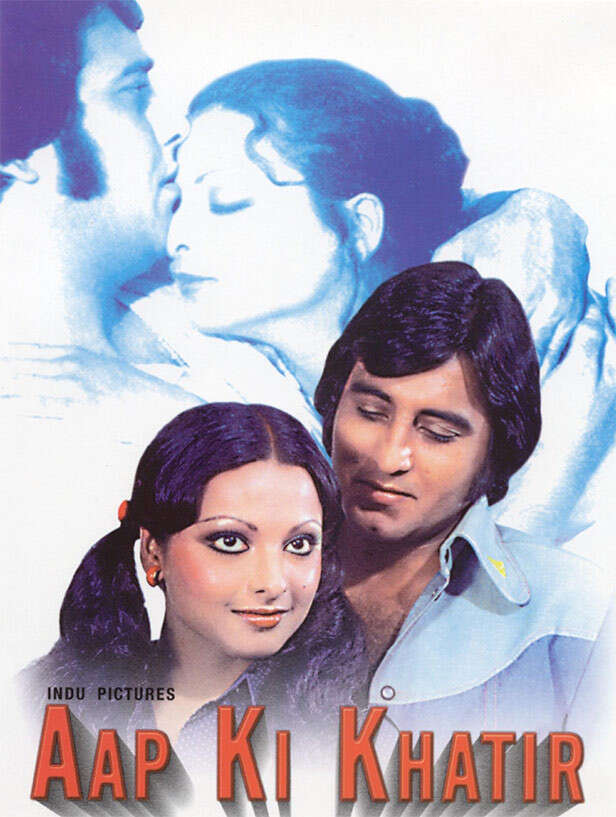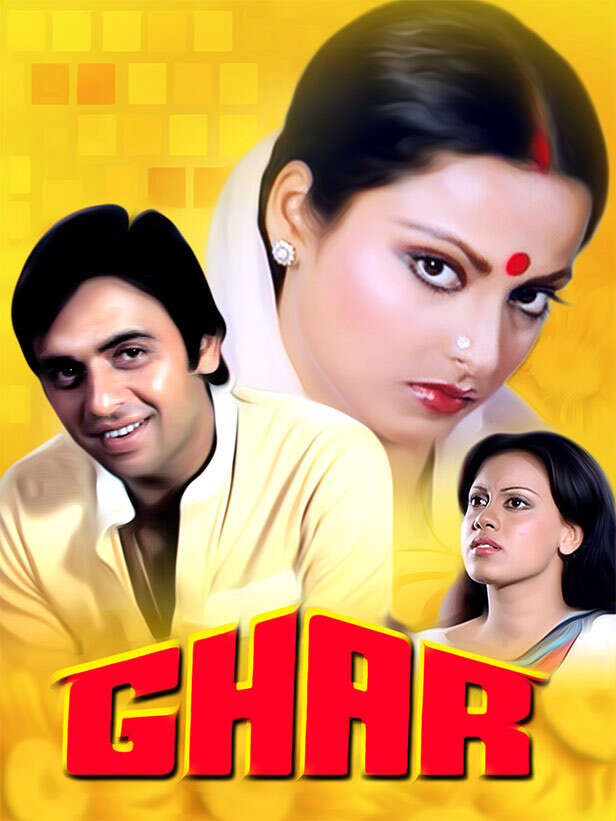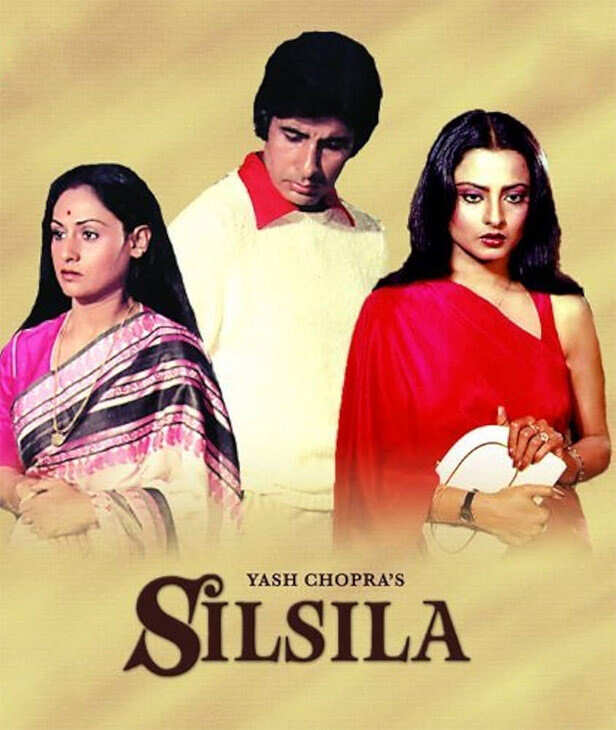Line of magnificence: An ode to Rekha on her seventieth birthday
[ad_1]
Which is maybe simply as properly, as a result of folks must know what goes into the making of an ideal actor. Nice actor she is. However she by no means received the alternatives, say like Shabana Azmi did. Maybe, it was her stardom, her larger-than-life persona or simply her alleged mercurial methods. Or possibly she simply didn’t chase roles like different actors did.
The Rekha I bear in mind is in largely unremembered movies. Like in Dulal Guha’s Do Anjaane (1976). A turgid story about an aspiring and an over formidable actress, whose profession is reduce quick by her marriage to a person of little means. She silently schemes his demise together with his finest buddy. In true Bharatiya nari custom Rekha will get her comeuppance when she realises that real love lies in her fireside. Her first movie the place she in all probability realised her true potential, Rekha walks the tightrope between aggrieved and aggressive. She’s terrific, glimpses of which we had additionally within the overreaching housewife of Aap Ki Khatir (1977).

Her whole recall as an actor to reckon with got here as soon as once more with Ghar (1978). Directed by Maneck Chatterjee, who handed away through the making of movie, the movie was accomplished by Gulzar. Ghar is a Gulzar automobile proper from its dialogue to tune sequences. As a housewife coping with the aftereffects of rape, Rekha wrenches out each little bit of your sympathy. She’s first fee and you’ll see it within the close-ups within the Phir wohi raat tune and her remaining outburst together with her empathetic husband Vinod Mehra.
Ever after Ghar, she flounced round in a number of industrial chartbusters till Prakash Mehra’s Muqaddar Ka Sikandar (1978) occurred. A final-minute addition to the script, an adaptation of Devdas, Rekha’s Zohrabai, a contemporary Chandramukhi, is the complete spice rack on this eminently watchable masala caper. Her lengthy strains of dialogue in her demise scene are masterful as they’re shifting. Right here was basic Rekha. Give her a possibility and she or he would seize the day.
This identical decisiveness she confirmed in Shyam Benegal’s adaptation of Mahabharata – Kalyug (1981). Regardless of a miniscule position, she knocks it off the park within the scene the place the revenue tax guys are going via her intimate belongings, a metaphor of Draupadi’s vastraharan episode. That she’s a changeling actor is finest seen when she switches from chilly and calculated in her dealings with husband Raj Babbar and her heat virtually bordering on the sensual relationship with brother-in-law Anant Nag.

The early ’80s have been her annus mirabilis. After specialising as ‘the opposite lady’ or the courtesan, alternative got here within the type of Yash Chopra’s Silsila (1981). Maybe too dangerously near actual life, folks regarded for drama. Regardless of being saddled with an unsympathetic position, Rekha makes you look past her shiny lips and China silks – observe her close-ups within the Neela aasman tune, her lengthy silences in her scenes with husband Sanjeev Kumar, her breakdown with Amitabh Bachchan in Lodhi Gardens or simply her unshed tears within the confrontation with Jaya Bachchan.
In sharp distinction to the angst of Silsila was her free spiritedness which confirmed in Hrishikesh Mukherjee’s Khoobsurat (1980)! Because the goofy Manju, Rekha was in high type. Be it in her dance within the Piya baawri classical quantity or her remaining scene on the railway station… the metamorphosis of the tender gosling right into a swan was properly underway.
Additionally first fee was her efficiency within the annoyingly maudlin Jeevan Dhaara (1982). As the only supplier to a pile-on household, Rekha pulls in a measured efficiency in addition to drawing in all of the sympathy. Piquantly, her nice performances got here from the much-derided Southside melodramas like Judaai, Ek Hello Bhool, Maang Bharo Sajna, Asha Jyoti and Prem Tapasya via the ’80s. Apart from Jeetendra and her crispy kanjeevaram sarees, the frequent issue was additionally Rekha’s unbelievable acts in these slushy affairs. Pattern her scene with Reena Roy in Prem Tapasya the place the latter gives her cash to steer clear of her beau. Or her scene with Mazhar Khan in Mehndi Rang Layegi (1982), the place she provides him a mouthful concerning the first day of their married life.

In the meantime, her face launched shiny journal covers in addition to the acres of prurient press about her love life. She couldn’t care much less. There have been the notable performances in Khoon Bhari Maang (1988) that ratcheted up her shares in addition to fetching her the Filmfare Award for Greatest Actress but once more after Khubsoorat.
Her ascent as a commercially viable high star was punctuated with one more nice flip in Umrao Jaan (1981). Rekha inhabited the pores and skin and spirit of poetess Umrao Jaan Ada and gave it the correct quantity of disappointment and want. Justuju jiski thi usko toh na paaya hamne… Asha Bhosle’s voice poured poetry into the efficiency. Rekha gave it soul. Desolation by no means felt extra poetic than in Umrao.
Rekha may additionally present us how sensuality might be changed into a efficiency. Take Basu Bhattacharya’s middling Aastha: Within the Jail of Spring (1997) redeemed with a honest Rekha act or Mira Nair’s Kama Sutra: A Story of Love (1996), her scenes are proof that middle-aged girls had historical past coupled with expertise. And historical past is usually a digital camera’s finest buddy.
The digital camera remains to be in love with Rekha although we not often see it save for an occasional Zubeidaa (2001) or a number of award present appearances. There are subterranean depths nonetheless ready to be plunged, feelings nonetheless ready to be explored.
Wishing her a really blissful birthday and will she blossom much more and give you some extra wonderful performances.
[ad_2]
Source link